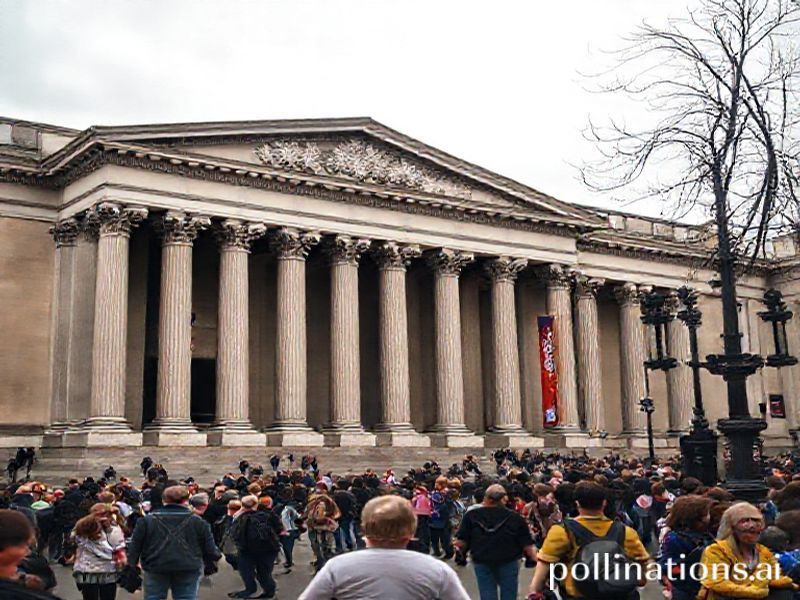British Museum Goes Viral: Why the World’s Oldest Museum Is Having a Moment
**The British Museum: A Global Trend That’s More Viral Than the Rosetta Stone Itself**
Alright, listen up, internet denizens! There’s a new trend sweeping the globe, and it’s not just another dance craze or a meme featuring a surprised Pikachu. No, this time, it’s a brick-and-mortar institution that’s been around since before your great-great-grandparents were even a twinkle in their parents’ eyes. That’s right, we’re talking about the British Museum, and it’s having a moment.
**Why is the British Museum trending?**
First off, let’s address the elephant in the room—or rather, the Rosetta Stone in the room. The British Museum, located in the heart of London, is home to some of the most iconic artifacts in human history. We’re talking the Elgin Marbles, the Egyptian mummies, and the aforementioned Rosetta Stone. But why is it suddenly trending now?
Well, for starters, the museum has been making some serious waves on social media. With over a million followers on Instagram, the British Museum is serving up a steady diet of ancient artifacts, behind-the-scenes looks, and even the occasional meme. They’ve embraced the algorithm, and it’s paying off.
But it’s not just about the ‘grams. The British Museum has also been making headlines for its efforts to address its colonial past. In a move that’s as bold as it is controversial, the museum has been working to repatriate some of its most contentious artifacts. This has sparked a global conversation about cultural heritage, ownership, and the ethics of museum collections.
**Cultural Context**
The British Museum, founded in 1753, is a product of the Enlightenment era. It was built on the idea of collecting and displaying the world’s cultural treasures in one place, for the benefit of all mankind. But as we all know, the road to hell is paved with good intentions.
The museum’s collections are a direct result of Britain’s colonial past. Many of its most prized possessions were acquired through conquest, looting, or outright theft. This has led to ongoing debates about the ethics of the museum’s collections and the need for repatriation.
**Social Impact**
The British Museum’s trendiness is more than just a fleeting internet fad. It’s a reflection of a broader cultural shift. We’re living in an era of decolonization, where marginalized voices are demanding to be heard, and institutions are being held accountable for their past actions.
The museum’s efforts to address its colonial past and repatriate artifacts have sparked a global conversation about cultural heritage and ownership. This is a big deal, folks. We’re talking about a paradigm shift in the way we think about museums and their collections.
**What Makes This Topic Significant?**
So, why should you care? Well, for starters, the British Museum is a microcosm of the broader cultural shifts happening around the world. It’s a reflection of our collective desire to reckon with our past, to address the injustices of history, and to build a more equitable future.
Moreover, the museum’s trendiness is a testament to the power of social media. It’s a reminder that even the most staid and traditional institutions can embrace the digital age and reach a global audience.
But perhaps the most significant aspect of this trend is the conversation it’s sparking about cultural heritage and ownership. As the British Museum grapples with its colonial past, it’s forcing us all to confront some uncomfortable truths about our shared history. And that, my friends, is what makes this trend more than just a fleeting internet fad. It’s a cultural moment.
In conclusion, the British Museum’s trendiness is a reflection of our collective desire to reckon with our past, to address the injustices of history, and to build a more equitable future. It’s a testament to the power of social media and a reminder that even the most traditional institutions can embrace the digital age. And perhaps most importantly, it’s sparking a global conversation about cultural heritage and ownership that’s long overdue.
So, the next time you’re scrolling through your Instagram feed and see a post from the British Museum, remember: this is more than just a pretty picture of an ancient artifact. It’s a symbol of our collective journey towards a more just and equitable world.







